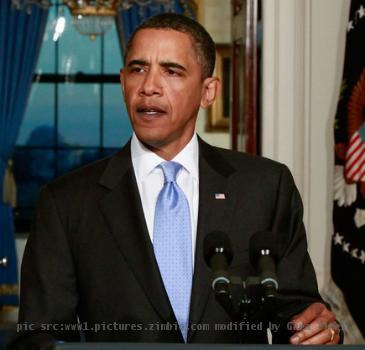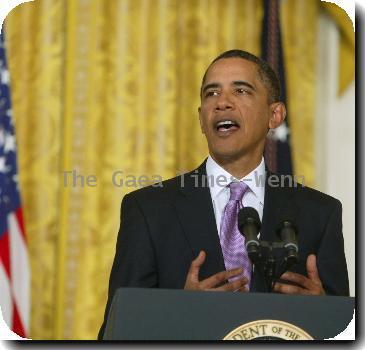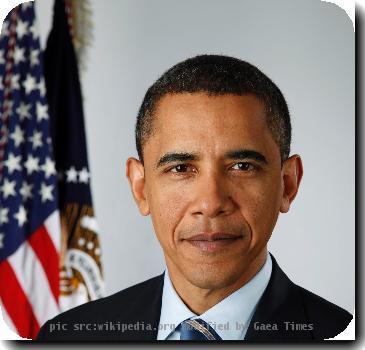A look at some potential Obama nominees to replace Stevens on the Supreme Court
By Jesse J. Holland, APFriday, April 9, 2010
Potential Obama nominees for the Supreme Court
WASHINGTON — Sketches of potential candidates to replace retiring Justice John Paul Stevens, listed alphabetically, with their pros and cons:
WHO: Merrick B. Garland.
CURRENT JOB: Judge on the U.S. Circuit Court of Appeals for the District of Columbia Circuit.
BACKGROUND: Garland was born in Chicago in 1952. Then-President Bill Clinton nominated him in 1997 to the U.S. Court of Appeals for the District of Columbia Circuit. A Harvard law graduate, Garland clerked for Supreme Court Justice William Brennan in 1978-79 before entering government service as a special assistant U.S. attorney general. Garland left the Justice Department in 1981 and worked in private practice in Washington until 1993. He took a three-year break during that time to work as an assistant U.S. attorney for the District of Columbia. He was promoted to deputy assistant attorney general in the Justice Department’s criminal division in 1993 and in 1994 became principal associate deputy U.S. attorney general, a position he held until his court nomination.
PROS: Respected by conservative and liberal experts following his management of the investigation of the 1995 bombing of the Oklahoma City federal building and subsequent prosecution of bomber Timothy McVeigh. Moderate legal positions would not likely lead to filibuster threats from Republican senators.
CONS: Moderate legal positions would not excite hard-core liberals as congressional elections come up this year. Was not a finalist in the White House’s last search for a Supreme Court nominee, which produced Justice Sonia Sotomayor. President Barack Obama may want to put another woman or minority on the court, instead.
WHO: Jennifer Granholm.
CURRENT JOB: Michigan governor.
BACKGROUND: Granholm was born in 1959 in Vancouver, British Columbia. She earned her law degree from Harvard University in 1987 and broke into the political world as a full-time aide for the Michigan campaign of Democratic presidential candidate Michael Dukakis in 1988. She entered the legal world in 1988 through her job as an executive assistant for criminal justice issues in the Wayne County executive office. Granholm started work as a prosecutor in the U.S. attorney’s office in Detroit in 1990, where she stayed until her appointment as Wayne County, Mich., corporation counsel in 1995. She became Michigan’s attorney general in 1999 and governor in January 2003.
PROS: Would bring nonjudicial experience to the Supreme Court, which several senators say is needed. Would bring the number of female Supreme Court justices to three, an all-time high. Would bring political and prosecutorial experience.
CONS: No judicial experience. Has said nomination would be a great opportunity but, “I just don’t think that’s going to happen.” Was not a finalist in the White House’s last search for a nominee. Questions about her stewardship of Michigan, which was hit hard during the recession, could come up.
WHO: Elena Kagan.
CURRENT JOB: U.S. solicitor general.
BACKGROUND: Kagan was born in 1960 in New York City. She received a law degree from Harvard Law School in 1986, then worked as a law clerk to Supreme Court Justice Thurgood Marshall. Kagan went into private practice in Washington from 1989 until 1991, when she became a professor at the University of Chicago law school. She became associate counsel to Clinton in 1995 and climbed the ladder to deputy assistant to Clinton for domestic policy and deputy director of the Domestic Policy Council in 1997. Clinton nominated her to the U.S. Court of Appeals for the District of Columbia Circuit in 1999, but she never received a confirmation hearing from the Senate Judiciary Committee. She became a professor at Harvard Law School since 1999 and the school’s dean in 2003. She was confirmed as solicitor general last year.
PROS: Respected by conservative and liberal lawyers after time at Harvard Law School. One conservative activist last year called Kagan “less extreme than most of President Obama’s leading candidates for the Supreme Court.” Already known as “Tenth Justice” because the solicitor general is the executive branch’s chief lawyer before the high court. Was a finalist in the White House’s last search for a nominee and was interviewed by the president. Would bring the number of female justices to three.
CONS: No judicial experience. Thirty-one Republicans voted against her for solicitor general. Republicans refused to hold a hearing for her nomination to the U.S. Court of Appeals in 1999, a seat that went to John Roberts, now chief justice of the Supreme Court. Logged first Supreme Court argument experience in 2009 as solicitor general. Her stand against military recruitment at Harvard Law School because of the armed forces’ “Don’t Ask, Don’t Tell” policy is sure to be a talking point against her.
WHO: Harold Hongju Koh.
CURRENT JOB: Legal adviser to the State Department.
BACKGROUND: Koh was born in Boston in 1954. He earned his law degree from Harvard, then served as law clerk for Justice Harry Blackmun in 1981-82. He worked in private practice in Washington for a year before being hired on at the Office of Legal Counsel at the Justice Department. He left government to become a law professor in 1985 at Yale University, where he stayed until he became assistant secretary of state for democracy, human rights and labor in 1998. He became Yale’s law school dean in 2001. He left Yale to work for the State Department after Obama was elected.
PROS: Would make history as the first Asian-American Supreme Court nominee. Would excite hard-core liberals looking to swing the courts to the left. Would bring nonjudicial experience to the Supreme Court.
CONS: No judicial experience. Liberal stances would guarantee a fierce confirmation fight with Republicans in the Senate, who have enough votes to filibuster a nominee if they want.
WHO: Janet Napolitano.
CURRENT JOB: Homeland security secretary.
BACKGROUND: Napolitano was born in 1957 in New York City and got her law degree at the University of Virginia in 1983. She then clerked for Mary Schroeder at 9th U.S Circuit Court of Appeals in San Francisco for a year before going into private practice in Phoenix. Napolitano was named U.S. attorney for Arizona in 1993 and stayed in that position until she returned to private practice in 1997. In 1999, she became Arizona’s attorney general, a position she held until she became governor in 2003. Obama tapped her to head the Homeland Security Department last year.
PROS: Was a finalist in the White House’s last search for a nominee and was interviewed by the president. Would bring the number of female justices to three. Would bring political and prosecutorial experience to the high court.
CONS: No judicial experience. Nomination would bring questions about her comment that “the system worked” after the failed Christmas Day terrorist attack on Northwest Airlines Flight 253. She likely would also face criticism for a draft department threat assessment in 2009 that implied military veterans could be susceptible to extremist recruiters or commit lone acts of violence.
WHO: Deval Patrick.
CURRENT JOB: Massachusetts governor.
BACKGROUND: Patrick was born in 1956 in Chicago. He earned a law degree from Harvard in 1982. He was a lawyer for the NAACP Legal Defense Fund from 1983 to 1986 before entering private practice. He stayed in the private sector except for a Justice Department stint in 1994-97. As the Clinton administration’s assistant attorney general for civil rights, he led a federal investigation of church burnings throughout the South. Patrick left government to become chairman of Texaco Inc.’s Equality and Fairness Task Force, then was named vice president and general counsel for Texaco Inc. in 1999. He was executive vice president and general counsel for The Coca-Cola Co. from 2001 to 2004 before winning the Massachusetts governorship as a Democrat in 2006.
PROS: Personal friend of Obama and like the president, is a Chicagoan, Harvard Law graduate and African-American. Would increase the number of black justices to two. Would bring political and prosecutorial experience to the high court.
CONS: No judicial experience. Would face questions about the political and financial status of Massachusetts, which has a statewide health care plan similar to the nationwide plan just passed by Congress and signed into law by Obama.
WHO: Diane Pamela Wood.
CURRENT JOB: Judge on 7th U.S. Circuit Court of Appeals in Chicago.
BACKGROUND: Wood was born in 1950 in Plainfield, N.J. Clinton nominated her to the 7th Circuit in 1995. She earned her law degree from the University of Texas School of Law before clerking for Supreme Court Justice Harry Blackmun from 1976-1977. She went to work as a lawyer-adviser in the State Department’s Office of the Legal Adviser from 1977-1978 before working in private practice in Washington in 1978-1980. She became a professor at Georgetown University during 1980-1981, then a professor at the University of Chicago from 1981-1995, where she also served as associate dean from 1989-1992. She re-entered government service at the Justice Department as special assistant to the associate attorney general during 1985-1987, and as the Antitrust Division’s deputy assistant attorney general for international, appellate and policy matters from 1993-1995 before becoming a federal judge.
PROS: Was a finalist in the White House’s last search for a nominee and was interviewed by the president. Would bring the number of female justices to three.
CONS: Would ignite a battle over abortion rights during the confirmation process. Anti-abortion activists portray Wood as being hostile to their cause.
Tags: Barack Obama, Bill Clinton, Chicago, District Of Columbia, Elena kagan, Filibusters, Higher Education, Illinois, John paul stevens, Judicial Appointments And Nominations, Law Schools, Massachusetts, Michigan, Military Recruitment, New York, New York City, North America, Supreme court justices, Texas, United States, Washington












